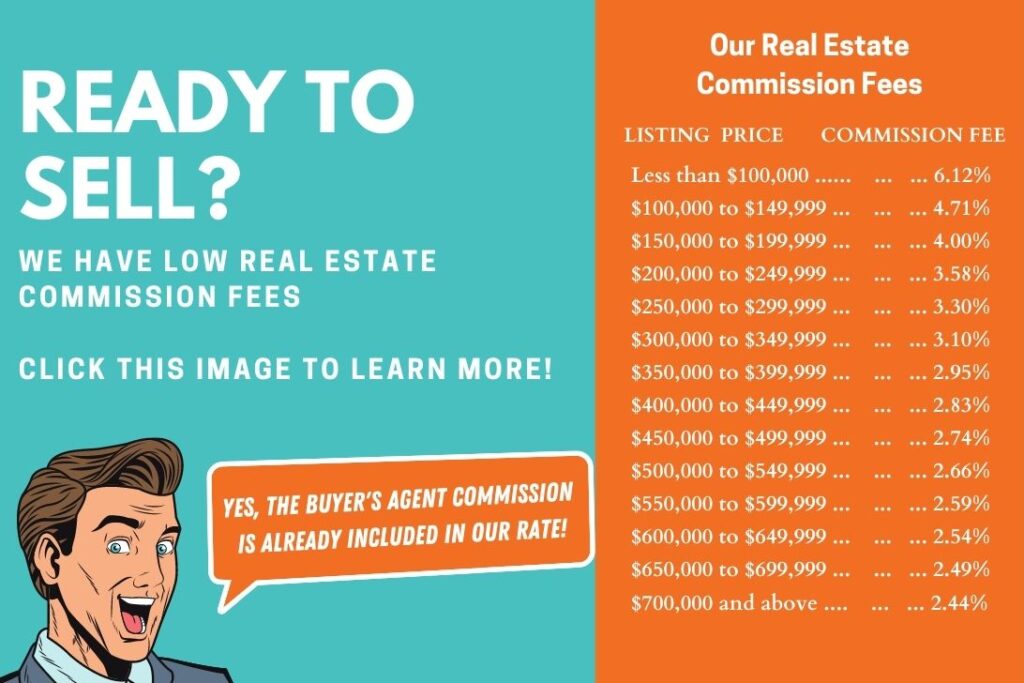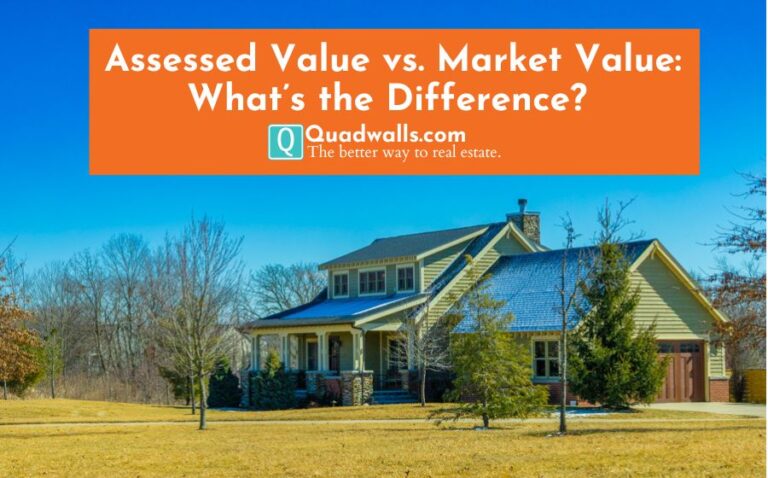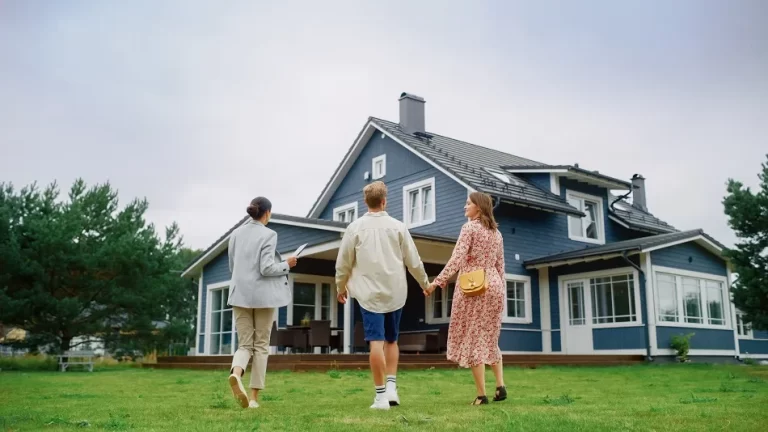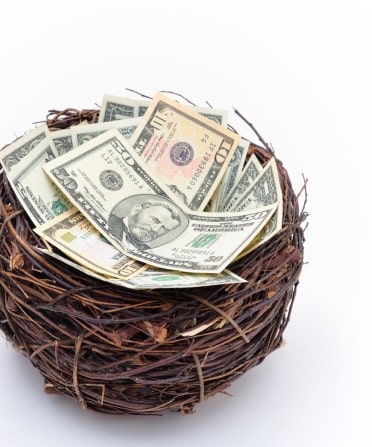How To Increase Home Value: Tips For Raising Resale Property Value
Table of Contents
If you are preparing to sell your home you should focus on how to increase house value. There are specific tasks and items which raise home value. Here, you can learn about what affects home values and what you can do to boost home values when selling a home.
What Is a Home Appreciation?
Home appreciation is the rate of increasing home value over time. Nationally, the average property value increase over 10 years has been 3.7% per year for a total of about 44% over the last 10 years. However, many homeowners have found their home’s sale price more.
Specific regions have seen above average real estate appreciation rates especially from 2017 through early 2022. For example, among Northwest Indiana real estate, home to Quadwalls.com, the average sale price for a home has increased by 152% over the last 10 years.
There is a way to boost home value with every home. Most sellers want to know how to get a higher asking price for their home.
Home Appreciation Vs. Depreciation
Appreciation is the increase in home value over time. Home depreciation is the reduction in home value over time. Factors causing a home’s value to depreciate include economic hardship, increasing crime rates, or the home being neglected.
What Is The Average Home Appreciation Rate?
The average long term real estate appreciation rate is about 3.7% per year. Many factors affect real estate appreciation rates.
During the late 2010s and early 2020s macroeconomic tailwinds and population shifts caused home prices to appreciate at much faster rates compared to historical norms. At other times, such as during the Great Recession of the late 2000s home prices depreciated rapidly.
What Increases Home Value?
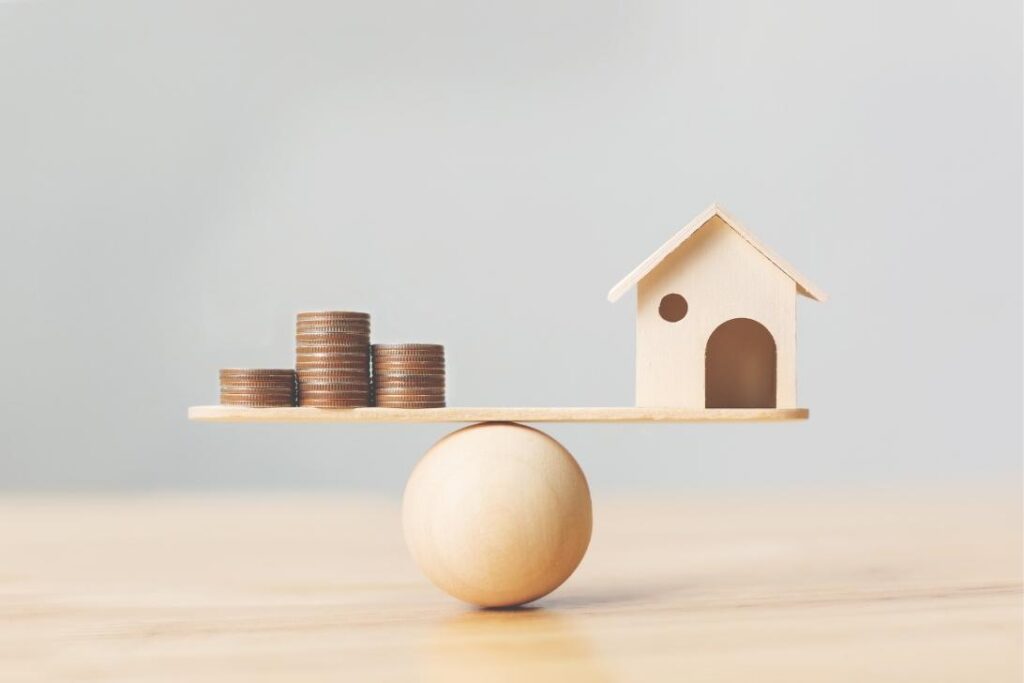
Location
Many factors affect what makes property value increase. But, location, location, location is what they say in real estate. Let’s review the specifics to better understand why a home’s location has such a large effect on a home’s sale price.
Community Improvement
Homes near frequently visited places typically have a higher home value. Homes near places people frequently go typically have a higher asking price. These places include jobs, parks, and goods and services such as stores, restaurants, and healthcare facilities. So, before you tell your city council to deny a development, keep in mind that a proposed development project can improve your home value.
Crime Rates
A low crime rate in your area will increase your home’s sale price. Homeowners should be committed to helping their community have a lower crime rate in order to preserve and increase their home’s value.
School Performance
Homes in high quality school districts are typically worth more money. In most jurisdictions school attendance is assigned based on the student’s home’s location. Parents want their children to attend good schools. So, home sellers in areas with good schools will list their home at a higher asking price.
Homeowners Associations
Overall, a homeowners association (HOA) typically will boost home values. HOAs can preserve the quality of a neighborhood. Additionally, the equal application of standards causes homes in a neighborhood to be homogenous. Homogenous neighborhoods, or neighborhoods where the homes are relatively similar, actually have higher sale prices vs. more eclectic neighborhoods when comparing two homes of similar square footage.
Supply And Demand

One of the best ways to improve home value is to sell when no one else is selling. Buyers pay more for a high demand item when inventory is scarce. This rings true for homes, too.
Low housing inventory has been the driving force behind the rapid real estate appreciation rates starting in 2017 and through the early 2020s. More fuel was poured upon an already tight housing situation due to the record low mortgage interest rates that occurred then, too.
A supply and demand imbalance can cause home prices to depreciate, too. When there are far more sellers than homebuyers home prices will drop. This occurred in the late aughts of the 2000s and early 2010s. And when this occurs it can get ugly in a hurry with home values dropping quickly.
Real Estate Comps
In the real estate industry a comp, or comparable home, is a recently sold home which is similar enough to be compared to another home and establish the other home’s current market value.
Let’s say you are selling a home in a subdivision of relatively similar homes. Five other homes in your subdivision were sold in the last six months. If these homes are sold at high prices you will be rewarded with a higher price. However, if these homes are sold cheaply it can negatively affect your value.
Size, Space, And Core Features Of Your Home
Another major component of what makes property value increase is the home’s size, space, and core features.
Square footage affects home values. Not all square footage is equal, though. Above ground square footage is worth much more than basement square footage. Unfinished square footage has little value. Fannie Mae recently adopted the ANSI standard for classifying square footage calculations.
The space and design of your home matters. Again, with the ANSI measurement standard many home types will begin to see their square footage classed differently by appraisers. This includes split or multi-level homes and finished attic or dormer spaces. The latter is common in 1.5-story, Cape Cod, and bungalow style homes.
Lastly, are core features. Core features include:
- Number of bedrooms
- Number of bathrooms
- Total number of rooms
- Garage or no garage
- Basement, slab, or crawl space
- Addition of major features which could include: fireplaces, three / four seasons rooms, pools, overall landscape upgrade, or energy efficient appliances
Age And Condition Of Your Home
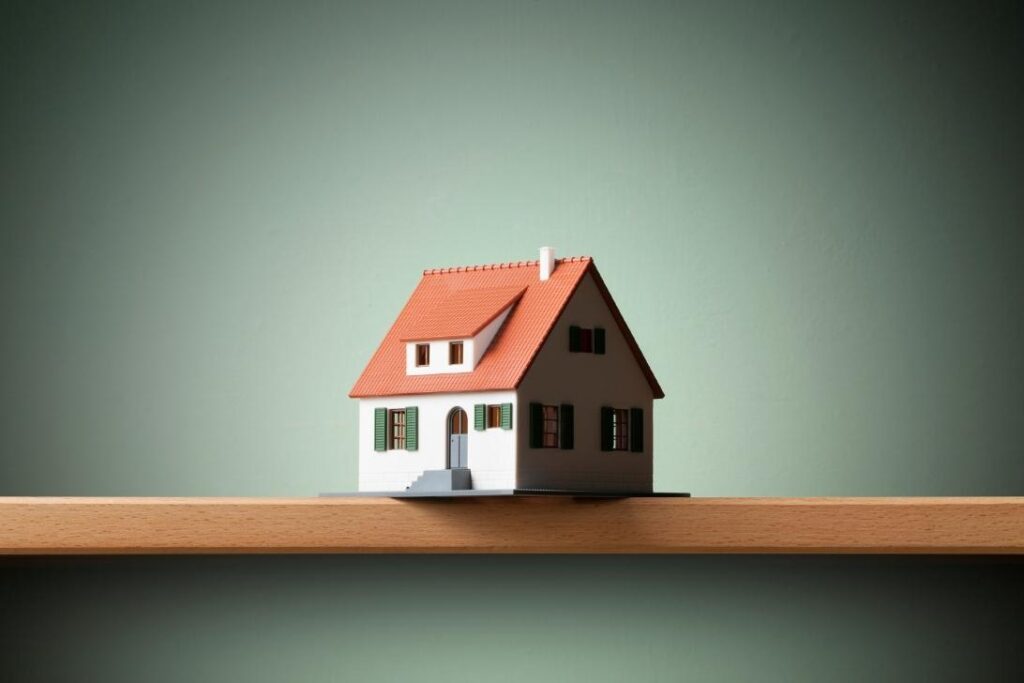
A home’s sale price is affected by its age. Real estate agents, appraisers, and the real estate market typically values newer homes more per square foot vs. older homes.
In real estate there are known real estate construction eras. These typically break down as follows but can vary a bit based on the area of the U.S.:
- Old: Pre-1920 – Built before many homes had standardized electrical and plumbing systems
- Pre WWII: 1920-1940 – Higher likelihood originally built with some plumbing or electrical system, but still older construction style
- Post-War Homes: 1945-1970 – Construction included many advances developed during the military complex industrial era. Electrical, plumbing, and foundations improved a lot.
- Early-Modern Era: 1970-1985 – Practices started to become more uniform throughout the U.S. due to greater industry adoption of uniform standards and local government ordinances. More conversations of and avoidance of using known harmful substances (examples like lead based paint, asbestos, etc.)
- Modern Era: 1985 to present – Poured form concrete wall foundations are nearly the norm and homes include a 3-wire electric system.
The condition of your home matters a lot, too. Having fresh finishes increases your home’s value vs. homes with signs of a lot of wear and tear. Neglected homes and homes with a lot of deferred maintenance are worth less than carefully cared for homes.
Upgrades And Updates
Specific upgrades and updates can boost home values. Homes with in vogue styling, colors, and fixtures can justify a higher asking price. But, not all upgrades are created equal. Here is a list in order of upgrades which add the most value to a home.
- Modern styled kitchen
- Main bedroom bathroom upgrades
- Other bathroom upgrades
- Newer, in-style flooring
- Interior fresh coat of paint
- High quality exterior features like a new garage or front door, vinyl siding, and landscape upgrade
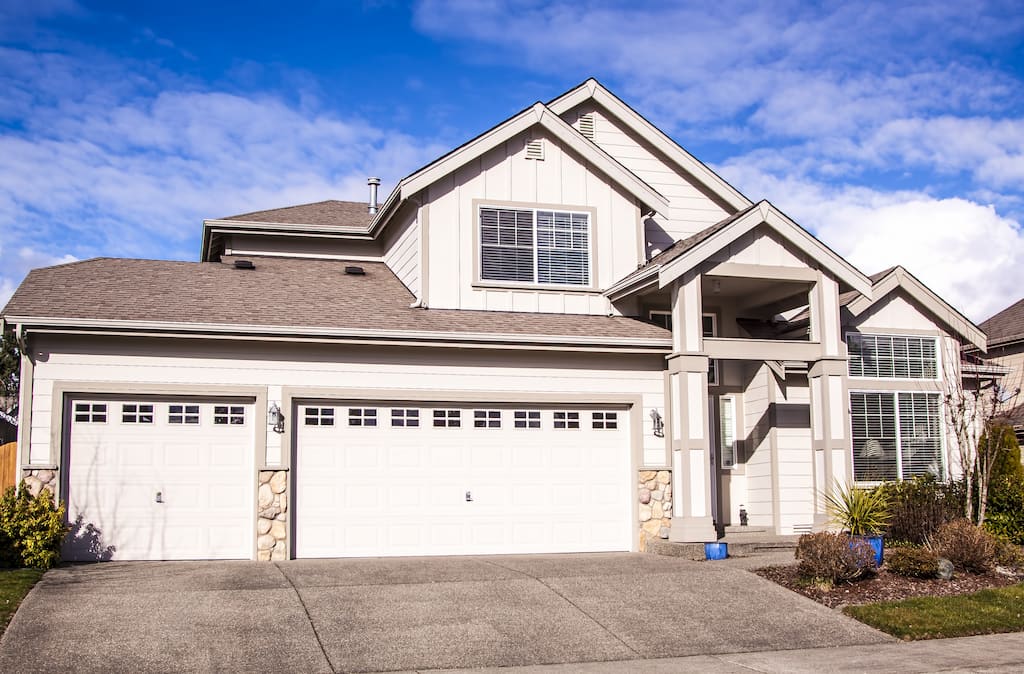
Zoning Regulations
Zoning dictates what is a permitted use of the land, or what can be built upon it. Zoning regulations on your and nearby properties affect your home’s value. Zoning generally protects a home value because it prevents the most nearby neighbors from non-conforming uses of the property.
On the other hand, a zoning change for nearby land can affect your home’s value. If the zoning is viewed as positive it will raise the home’s value. However, if the zoning change is something with a more negative feeling homebuyers may want to pay less for your home.
Local Economic Opportunities
Homes near high quality jobs are worth more than homes far from income earning opportunities. Few people would be willing to drive two hours each way to work a job just to afford the home. The development of additional jobs and good quality jobs near your home is good for your property values.
Political Action
Politics do affect your property values. At the federal level major legislative or monetary policy decisions will affect your home’s value. For example, when interest rates are lowered mortgage rates typically fall, too. Therefore, homebuyers can pay a higher price for your home.
Local politics can also have a huge effect on your home’s value. Rising tax rates, the completion or delay of infrastructure projects, or a surge of development are all real causes for a lower or higher home value. So, when asking how to increase property value at your home make sure to stay involved in the politics in your area.
Likelihood Of A Disaster
The Gulf Coast and Eastern Seaboard get hurricanes. Tornadoes in the Midwest and South. The West has earthquakes, water shortages, and wildfires. Is there anywhere safe to live?
The likelihood of a disaster does affect a home’s value. This is due to the cost of insurance, the risk of needing additional insurance, and the more frequent maintenance needed to keep a property ready to withstand one of these events.
How Is Home Appreciation Calculated?
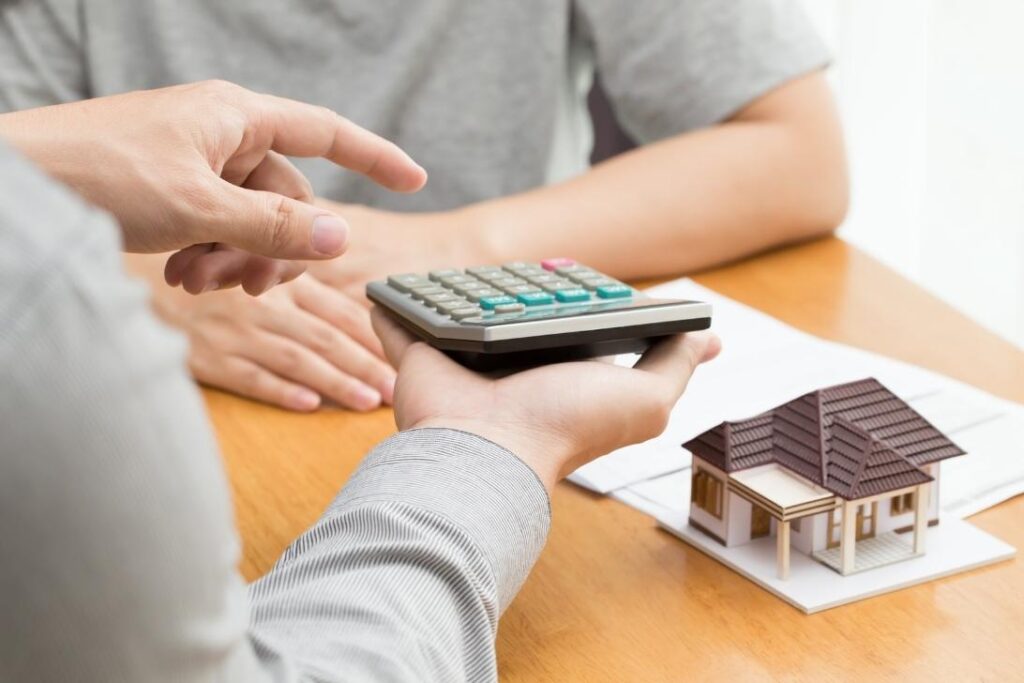
Now that we reviewed how to add value to your home let’s see how an appreciation rate is calculated. The math to calculate appreciation is (x – y) / y = appreciation rate
X is the value of the home at a specific time. Y is the value of the home at some other time. The rate of appreciation depends on the gap in time between variables x and y. Let’s look at an example of real estate appreciation. Using these facts:
- Today, a home is worth $325,000. One year ago the home was worth $300,000.
- So, the math looks like ($325,000 – $300,000) / $300,000 = 8.33%
- Since the time period was over just one year this was annual appreciation rate over the last year
How To Increase The Value Of Your Home
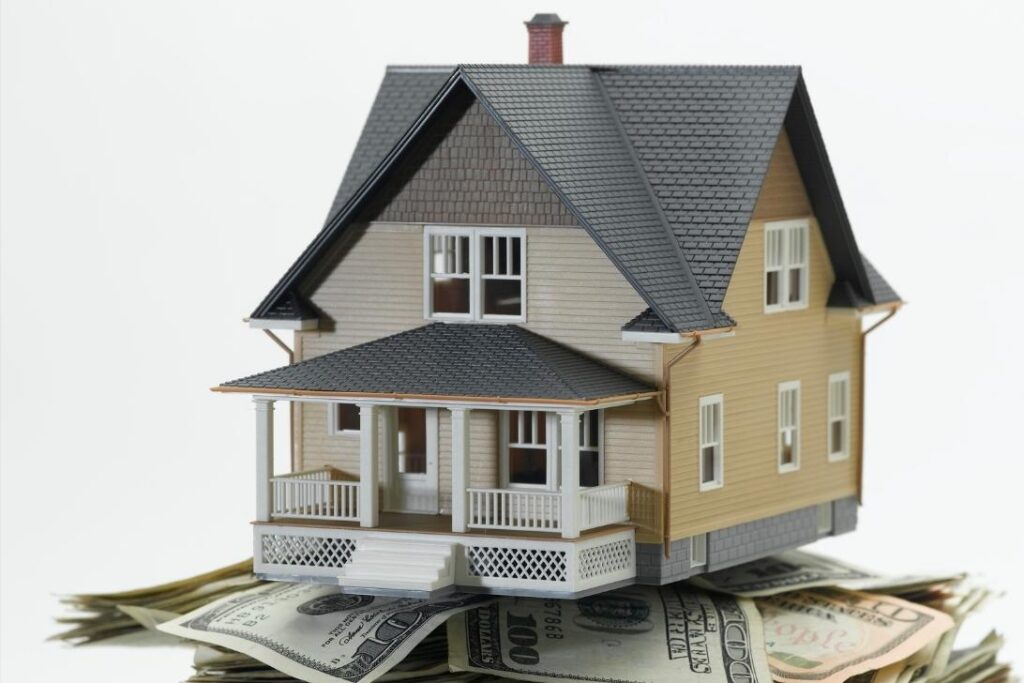
Many of the best ways to improve home value are easier and more affordable than you may think. Let’s get started with determining a budget, a plan, and learning which improvements effectively increase a home’s sale price.
Determine Your Goals
Before deciding how to increase property value of your home, determine how much you want to increase the home’s value. Additionally, make sure that your goal is realistic. Do this by determining the range in which homes like yours have recently sold. Failure to work within a realistic goal could cause you to over improve your home.
Create A Budget
Most of us have limited resources to do anything. Therefore, you should establish a budget for making home repairs and upgrades to get the most money out of your home. By creating a budget you can apply your limited resources to the items delivering the most bang for your bucks. A real estate agent can be a great resource to help you spend your budget most effectively.
Select Your Project
Now, it is time to start selecting which projects to tackle with your budget so you can justify a higher asking price when you list your home for sale.
If It’s Broke, Fix It
It is best to start with repairing anything that is broken. First, the broken item is likely to be discovered. Homebuyers could spot it while touring your home which will cause them to offer a lower price. Or, their home inspection will uncover the defect. Since you will likely have to confront the issue later, just confront it now.
Clean And Declutter
The easiest answer for how to increase property value is to clean and declutter the space. Mess and clutter affect a home’s sale price.
Start by throwing out or donating unneeded items. Once you have purged the unnecessary items, pack up the items you do not need on a day-to-day basis. Start filling boxes and neatly stack them in the basement or garage. Alternatively, renting a storage unit can work, too.
Re-Paint
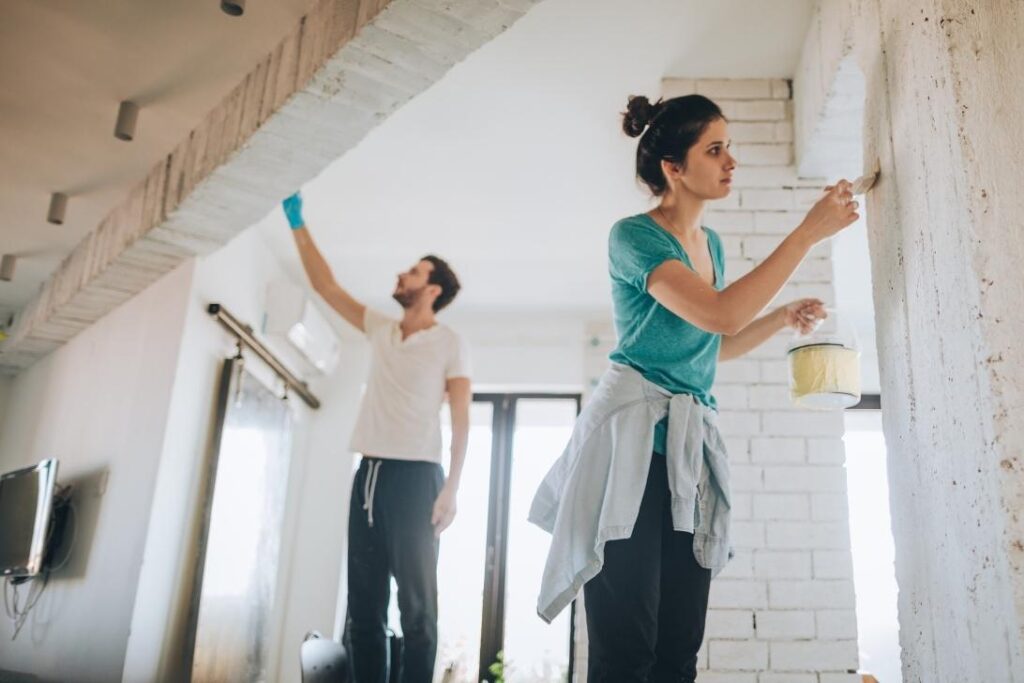
Nothing looks better than a fresh coat of paint.. Repainting your home will boost your home’s value. Fresh paint is clean and crisp. It also gives you the opportunity to make any drywalls repairs, too.
Choose neutral colors and nothing too dark. Dark paint colors make a room look smaller. Neutral colors help make your home more acceptable to a wide range of homebuyers. Some colors can be good though. A great example is creating a focal wall within a room or open space. A fresh coat of paint will almost always boost home values.
Touch Up Landscaping
Good curb appeal will increase a home’s sale price. Most people have too much landscaping. Start by pulling weeds and thickening up your lawn. Fertilizing and watering your lawn can get it looking better pretty quickly. Next, thin out overly grown areas.
Trimming bushes and decorative trees helps your home look better. On the other hand, if you have no landscaping, start improving by adding some plants. Perennials add greenery and flowers add bits of color.
Modernize A Bathroom
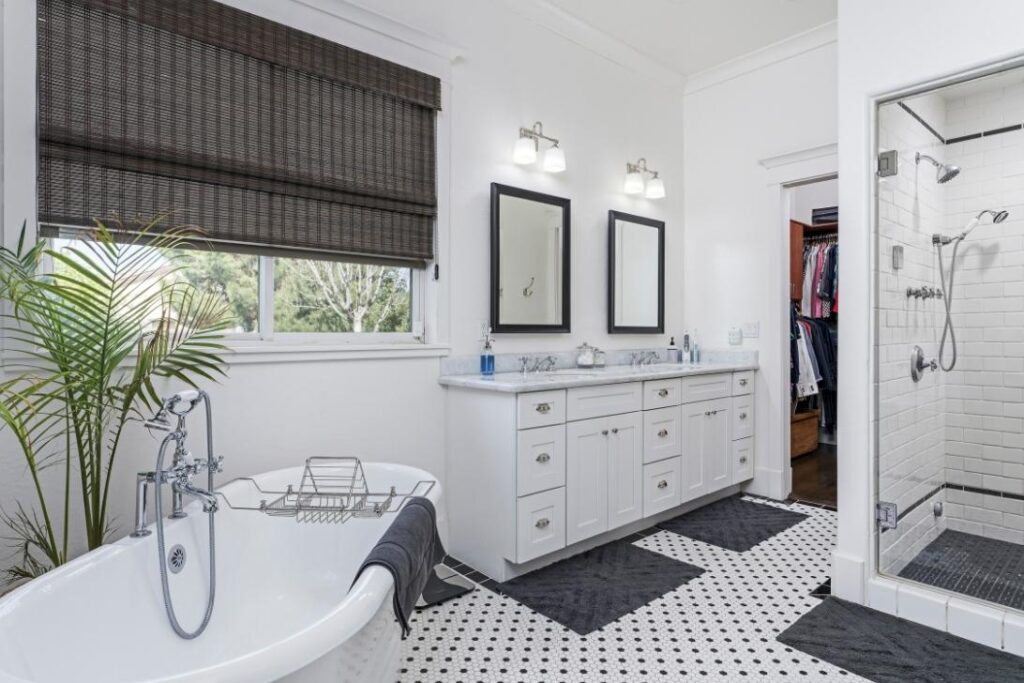
Improving bathrooms is costly but can do a lot to improve the value of your home. There are many bathroom upgrades from doing it all to just doing some of the items to spruce it up. Here is a list of possible bathroom upgrades to improve your home’s value.
- Gut it and do a complete makeover (most costly)
- Add a glass shower en-closure
- Re-tile the floor with something more in vogue
- Replace the vanity, sink, faucet, light fixtures, or mirror with something more contemporary
- Add accessories like a towel rack
Upgrade Kitchen
Kitchens are another area where big upgrades are costly but can also lead to big upgrades on your home’s sale price. A high quality kitchen is one of the most sought after features in a home.
Remodeling a whole kitchen could be cost prohibitive or just not doable based on your timelines. Here is a list of things you can do from the most costly and difficult to the least.
- Total remodel of the kitchen (most costly)
- Add quartz or granite countertops
- Replace, resurface and or repaint kitchen cabinets
- Change out boring light fixtures with something more exciting
- Install a new, trendy kitchen sink and faucet
- Get new stylish new cabinet knobs or handles
- If an eat-in kitchen, do a nice tablescape or replace the existing furniture with something trendy
Floors
Replacing worn out floor coverings will increase a home’s sale price. Heavily trafficked or stained carpet or hard surface floors with wear and tear is off putting to many homebuyers. Replacing tired floors will increase your home’s value.
If shopping for new carpet choose something trendy with neutral colors. Also, choose a decent padding, something in the middle to upper end of the range offered by the carpet seller. Regarding hard surface floors, manufacturers have come a long way with luxury vinyl plank (LVP). Though LVP is nice, nothing compares to a real hardwood product.
Add Efficiency To Your Home
In many areas of the country energy efficiency is starting to become important. Some homebuyers will pay more for a home with low utility bills. This can come by using alternative heating and cooling equipment and energy efficient appliances and windows.
Add More Usable Space
Adding more square feet to your home is one of the best ways to improve home value. The most common circumstance is finishing the basement. Finishing a basement will add value to your home.
Exterior Improvements
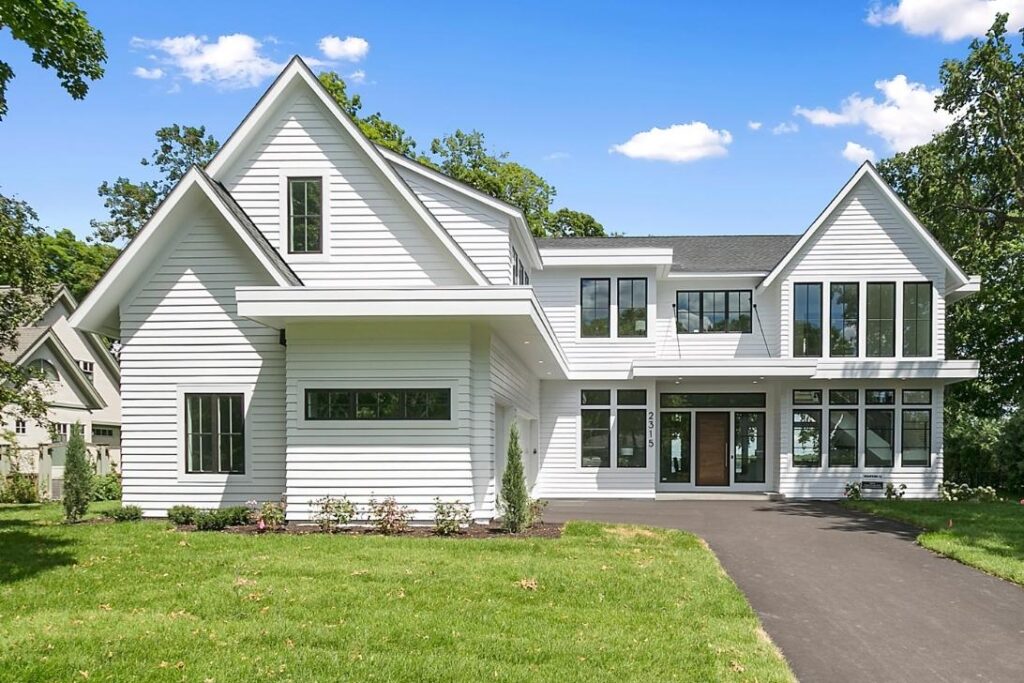
Improving a home’s exterior can increase a home’s sale price. Newer exterior materials are stylish and can add to your home’s energy efficiency. Replacing clapboard or aluminum siding with vinyl siding with in vogue design can increase your home value by 5% to 15%.
Other improvements to your home’s exterior which increase your home value include replacing or repainting a front door. Speaking of repainting, a fresh coat of paint on decks, porches, window sills, and garage door or exterior door frames makes your home look fresh and well-maintained. That look will increase a home’s sale price.
Make A Plan
Now, you need to decide what you are going to do. There are several things you will need to think about at the same time as you decide how to increase your home’s value based on your facts. Ask yourself these questions with each project you are deciding whether or not to complete:
- How much will this project cost?
- Will that project really increase my home’s value compared to what I have now and by how much?
- Can I do this job myself or will I need to hire an outside contractor?
- How long will it take to get the materials to complete this project?
- How long will it take to complete this project?
How Should I Pay For Projects That Increase Home Value
There are many ways to pay for the projects that increase your home value. Let’s take a look at some of those options.
- Savings – You can use your savings to pay for some of these repairs. That one is pretty straightforward.
- Personal Loans – You may get approved for a personal loan. A personal loan from a bank is unsecured and typically carries a lower interest rate than a credit card.
- HELOC – A HELOC means a home equity line of credit. Even if you have a mortgage you could go to another loan provider for a home equity line of credit. This can be a great way to borrow money at a low interest rate so you can complete those projects.
- Credit Cards – Credit cards are another way to pay for projects that increase home values. However, the interest rate could be high. Some building supply companies have store credit which you could use, too.
Conclusion
Home appreciation is the amount a home increases in value over time. A wide range of circumstances affects appreciation rates. Some events can even cause a home to depreciate.
Home sellers should take steps to increase their home’s value before selling their home. There are many ways to do this. Start by decluttering your home. Then form a budget so you know what resources you have to work with. After that, start determining which projects you can afford to complete and weigh which will have the greatest impact on improving your home’s value. At the same time, be careful not to over improve your home.
Real estate agents are the best sources for helping home sellers know how to improve the value of their home. The Quadwalls Real Estate Team is here to help Indiana home sellers sell their homes for top dollar.
You can learn more about our full-feature home selling services and low real estate commission fees, here. Another popular tool we have is the Quadwalls Home E-Valuation. Here, you can learn more about what you home is worth today. It’s all online, free, and a licensed real estate agent will actually do research to find your home’s value.
FAQ

Does rezoning increase property value?
Rezoning near your home can increase your home’s value. A rezoning to high-traffic commercial space or high value residential real estate is more likely to increase your home’s value. On the other hand a rezoning downgrade such as heavy industrial zoning can depreciate your home’s value.
Does a home security system increase property value?
A home security system with security cameras can add value to your home. Many homebuyers will feel safer knowing a security system is already in place. Due to this, some homebuyers will pay more for a home with a security system vs. one without a security system.
Does adding solar panels increase property value?
Adding solar panels to a home does not necessarily increase a home’s value. Unfortunately, the high cost of solar systems vs. the monthly utility cost savings is a compromise many homebuyers are not yet willing to make at this time.
Does having a well increase property value?
A private well for water does not necessarily increase a property’s value. Some homebuyers are concerned that maintaining the well is another cost. However, other homebuyers will feel not having a water bill makes the home worth more.
Do fences increase property value?
A fence does increase a property’s value. 37% of U.S. households have a dog. Fences are also good at keeping out unwanted critters and neighbors. Homebuyers will pay more for a home with a fence compared to the same home without a fence.
 Updated: March 29, 2023
Updated: March 29, 2023  257
257  20 min
20 min


